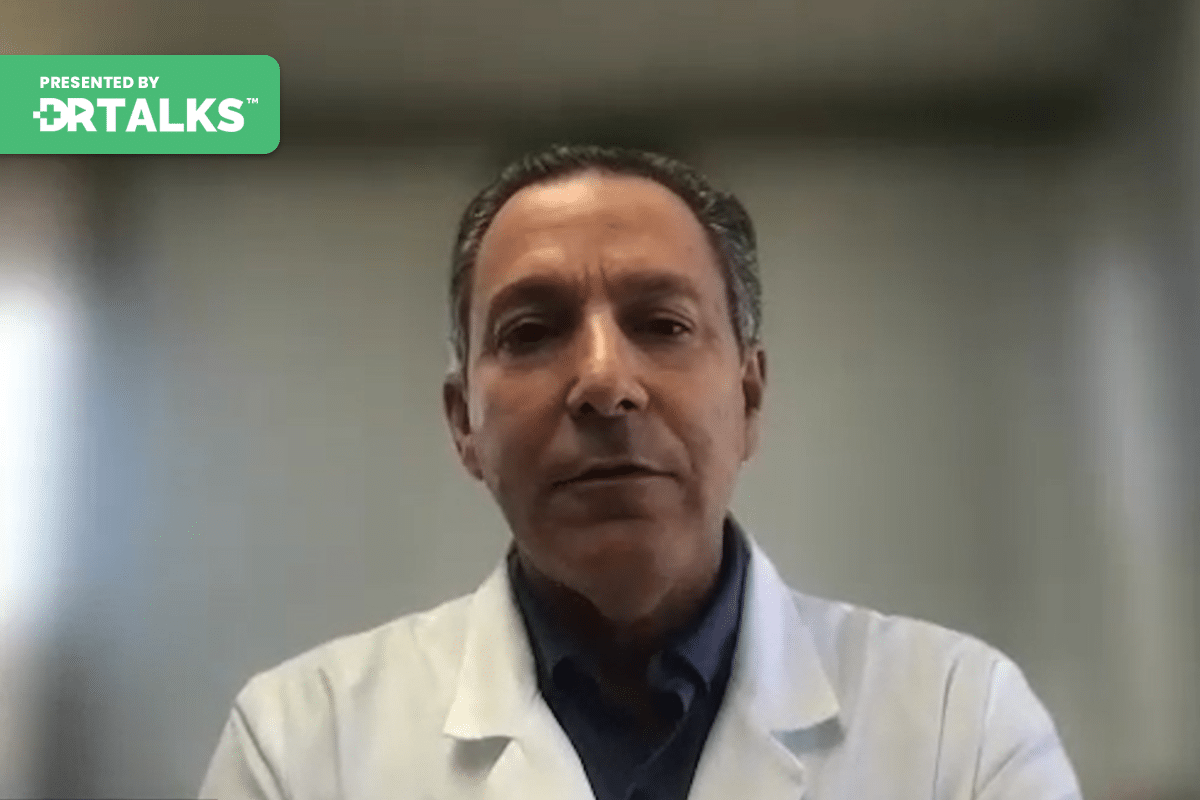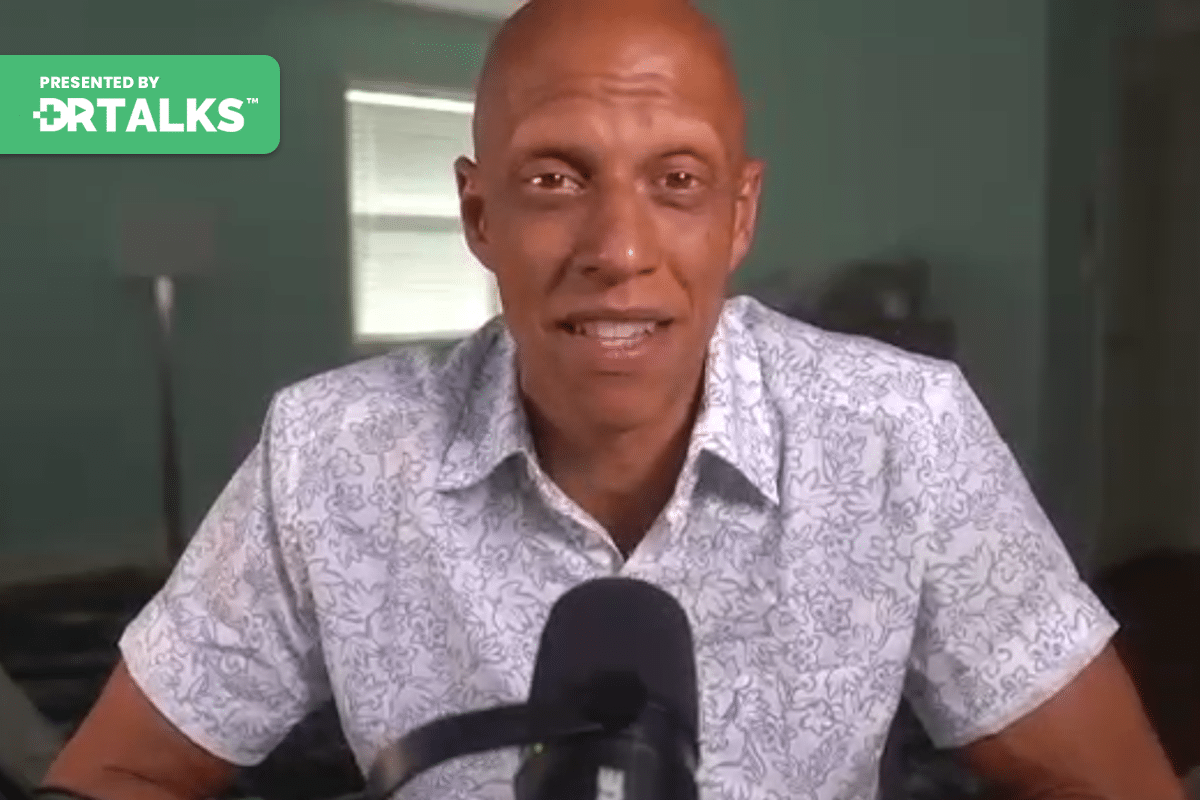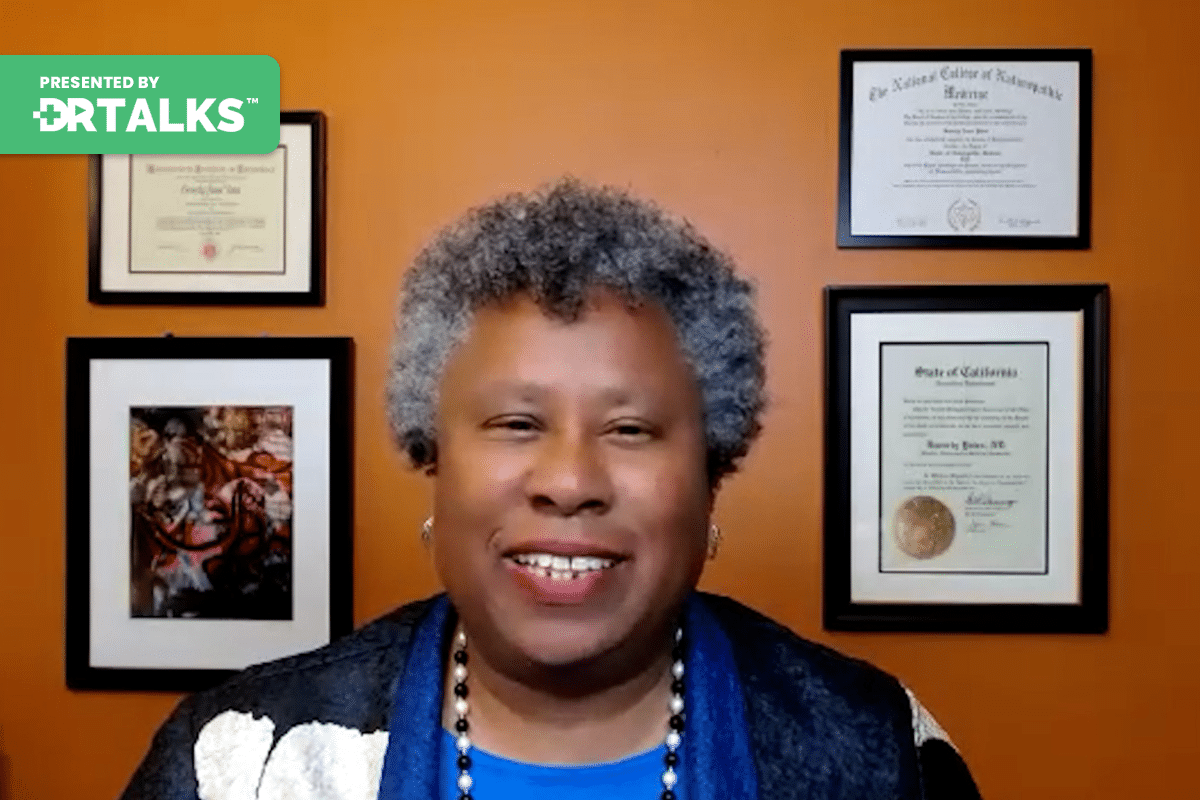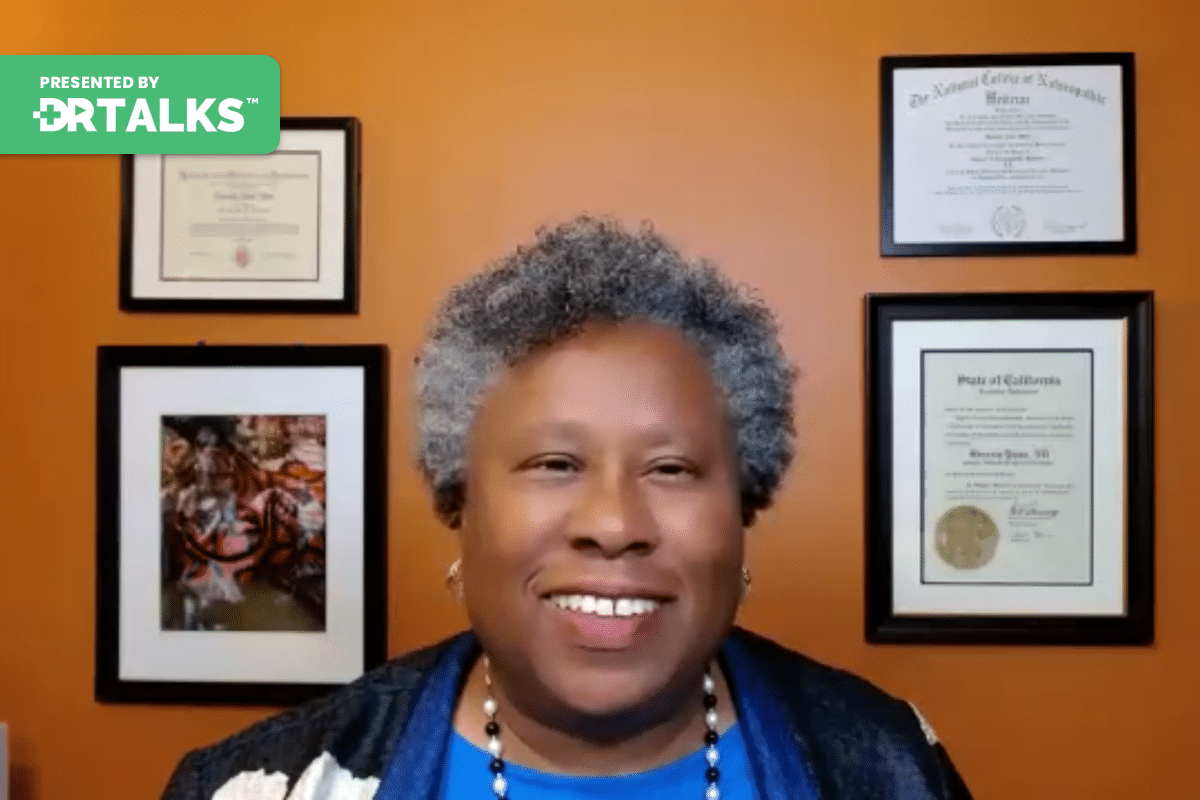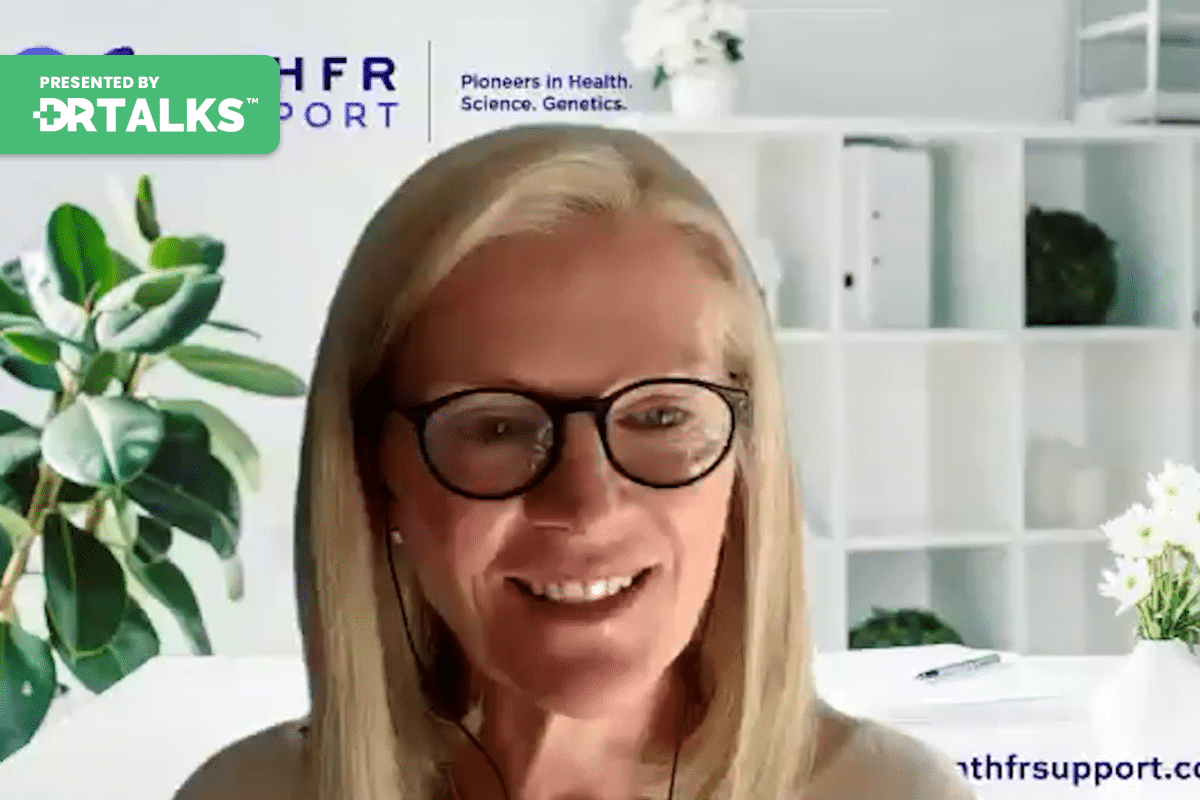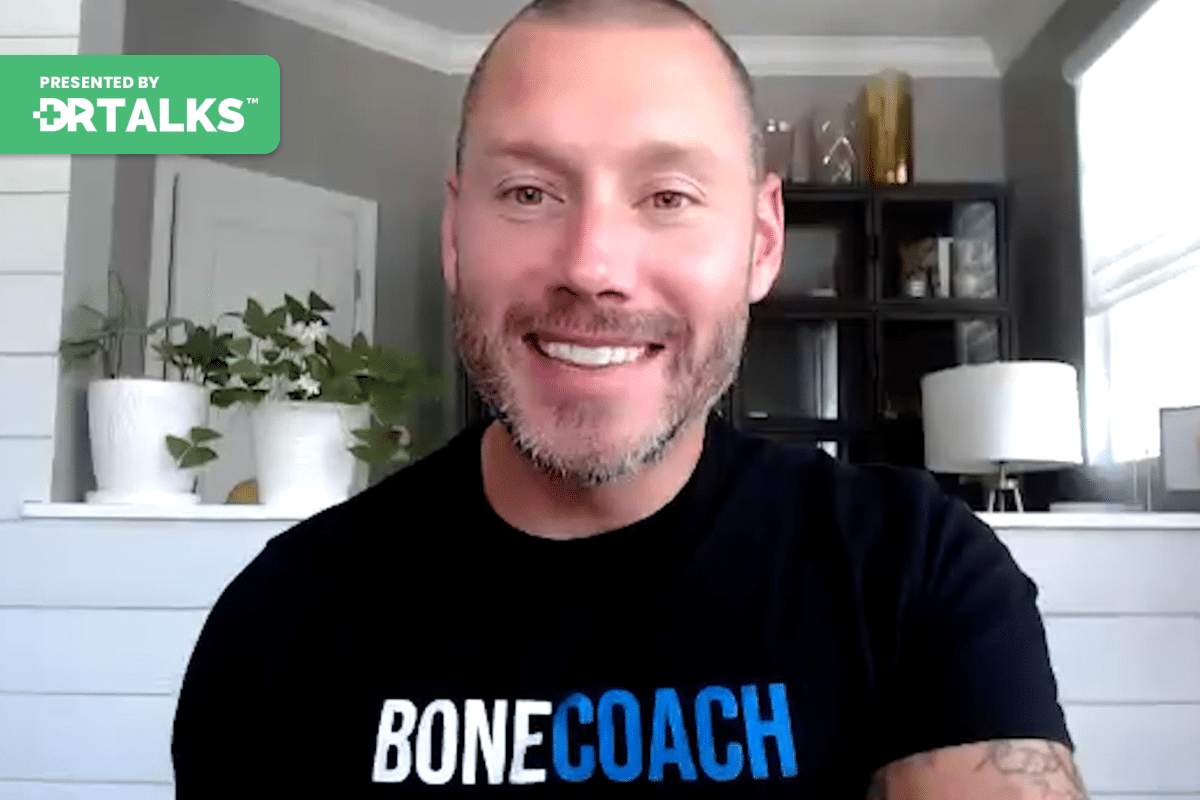Join the discussion below
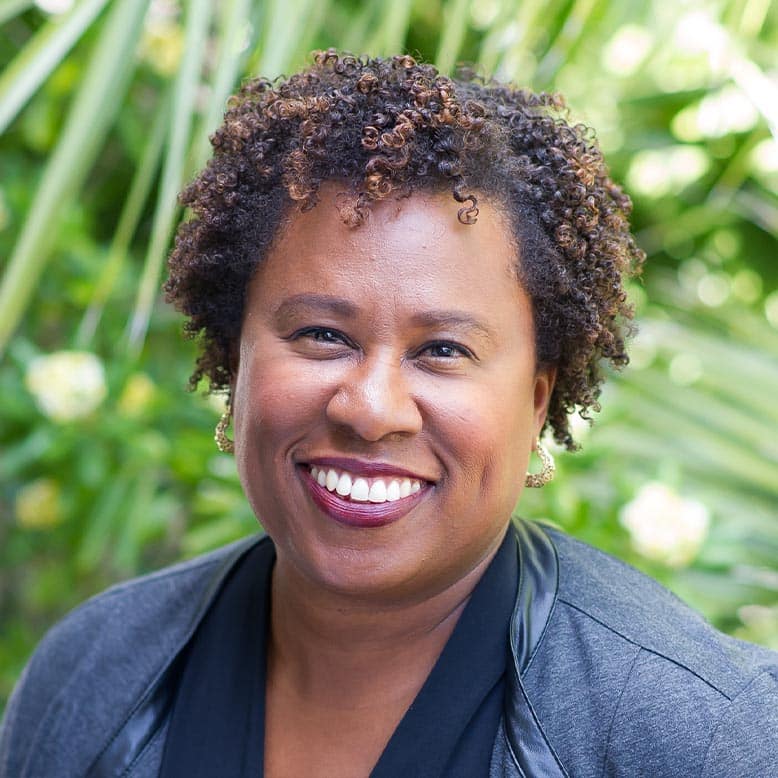
Beverly Yates, ND is a licensed Doctor of Naturopathic Medicine, who used her background in MIT Electrical Engineering and work as a Systems Engineer to create the Yates Protocol, an effective program for people who have diabetes to live the life they love. Dr. Yates is on a mission to... Read More
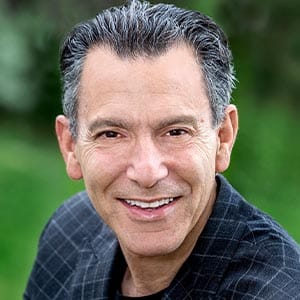
Joel Kahn, MD, FACC of Detroit, Michigan, is a practicing cardiologist, and a Clinical Professor of Medicine at Wayne State University School of Medicine. He graduated Summa Cum Laude from the University of Michigan Medical School. Known as “America’s Healthy Heart Doc”. Dr. Kahn has triple board certification in Internal... Read More
- Learn about the strong link between diabetes and heart disease. Understand the need for prevention and lifestyle changes
- Understand the importance of screening diabetic patients for silent heart disease. This ensures early diagnosis and intervention
- Know why adopting a heart prevention diet and lifestyle can effectively reverse diabetes. Reduce the risk of heart-related complications
- This video is part of the Reversing Type 2 Diabetes Summit
Beverly Yates, ND
Hi, everyone. Welcome to Reversing Type 2 Diabetes Summit. I’m your host, Dr. Beverly Yates, ND. On this session, I have the wonderful privilege of interviewing Dr. Joel Kahn, a fantastic expert in cardiology, metabolic related concerns and all of the things that are completely relevant when it comes to type 2 diabetes, prediabetes and glycemic regulation. Dr. Kahn, would you kindly introduce yourself to everyone?
Joel Kahn, MD, FACC
Thanks so much, Dr. Beverly, but it’s great to be with you. I am a practicing cardiologist. I’ve been doing this for 34 years since I finished my training and a whole lot of years before that. I’ve been taking care of patients and I am an active clinician. I don’t just write books and do interviews. I got a lot of patients and I’m trying to optimize their health. I’m in Detroit. I’m a professor at Wayne State University, the biggest med school in the United States. I have a past career as a heart attack slayer, cath lab, stents referring for bypass. But everything now is about prevention, and you simply can’t be a preventive cardiologist without a big focus on the words we use insulin resistance, dysglycemia, metabolic syndrome. While we’re going to talk about today and really exciting and encouraging news because everybody knows that drugs are out there, but we’re going to talk, I hope, mainly about lifestyle and the relationship between diabetes reversal and heart disease reversal. A super important topic.
Beverly Yates, ND
Absolutely. Right on the money because these things have a big overlap. I’m not convinced that the general public really understands why certain illnesses seem to travel together. They think of them as an accident like the one got diabetes overnight or they had a heart attack overnight. In the process was years, if not decades in the making. You and I know that. We’re going to uncover that intersection today. Joel, tell me, please, what’s the number one cause of death in men and women?
Joel Kahn, MD, FACC
Well, they’re sobering statistics, but they have to be repeated over and over because heart disease kind of gets lost in the crowd. I mean, we have concerns about many things, from stress, to cancer, to the pandemic, to mental health, to drug addiction. Every one of these are huge topics and so important. But nonetheless, since 1918, for 105 years, the number one killer men and women in the Western world, in the United States and every city in the United States, is the risk of dropping dead, suddenly having a heart attack, developing end stage, heart disease, heart disease, heart disease is, number one, a thousand people a day. Everybody’s got to get emotional about this. You kiss your loved one goodbye. You make a phone call to somebody you care about. A thousand people a day drop dead without warning. That was the last time you had a chance. You didn’t get a chance to say goodbye. You didn’t see it coming. That’s called sudden cardiac death. Almost one a minute throughout the 24 hours of the day in the United States adds up to about 400,000 people a year. I mean, that’s a whole bunch of football stadiums full of people in the course of a year drop dead suddenly. It’s such a tragic because there is not that goodbye. There is no hospice, there is no family around the bed. It’s just dead in bed, dead on the couch, dead in the bathroom, dead in the chair. Then we have the heart attacks which make up some of that sudden cardiac death.
We have maybe eight to 900000, nearly a million people a year in the United States having a heart attack. The most grievous to me is that about a third of the heart attacks in the United States are number two. Number three, we didn’t do much to prevent it. You’ve had a heart attack, you had to have 911 going all the time to eat better, move better to live better, sleep better. Yet, we don’t prevent those second hand attacks all that efficiently. Really, I just want to give one last shout out to high blood pressure. Everybody needs to own a home blood pressure cuff. If you have a scale at home, if you have an oximeter at home, if you have a thermometer at home, you have to have a home blood pressure cuff. Blood pressure is silent. It destroys your brain, it destroys your kidneys, it destroys your heart arteries. It’s particularly tragic in the African-American community. The impact of high blood pressure on health end up losing legs, end up being on dialysis. Get a home blood pressure cuff now. Buy one early Christmas presents for everybody and strive to make sure you have good blood pressure. We’re talking an enormous medical problem. But we spend more time talking about cancer, talking about other issues. We almost assume there’s not much you can do to detect, prevent, reverse heart disease. Oh, my God. That’s all I do every day. I don’t have enough hours in the day to do what I got to do.
Beverly Yates, ND
Absolutely. I couldn’t I couldn’t say that anybody did a great job. Summoning up high blood pressure is a silent killer. That along with the inflammation behind diabetes and heart disease and other things. A nasty combo.
Joel Kahn, MD, FACC
I agree.
Beverly Yates, ND
That leads us right into our next question, which is what is the connection between heart disease and diabetes?
Joel Kahn, MD, FACC
Sure. It’s probably well, let’s say this, I’m a student of the history of medicine. There weren’t that many heart attacks prior to World War Two. They occurred. You actually can find heart disease in mummies in Egypt. Heart disease has been around for a long time. We know that infectious and genetic conditions. But if you look at doctors and heart specialists before World War Two, they would tell you they just didn’t see that many heart attacks coming in through the emergency room. Something happened after World War Two. One, a lot of guys came back smoking because free Cigarets and the GI Bill. Number two, moms went to work. All of a sudden we didn’t have home cooked nutritious meals and we had the development of the fast food processed food industry characterized by Coca-Cola and McDonald’s and the rest. Our food change. Then we started to gain weight. There was a big uptick in heart attacks, actually, very soon after World War Two, In certain places like Minnesota, Minneapolis, Minnesota and Framingham, Massachusetts, got funding from the government.
Why are there so many heart attacks? Ten years after a period of relative calm, we came up with five big answers. If you smoke, you’re more likely to have heart attack, if you have high blood pressure, you might say you have a heart attack, if you have a high cholesterol, you’re more likely if mom, dad, brother, sister had a heart attack, you’re more likely. Number five was diabetes. We already had clues to this for many years. But it was firmly established that if you were a Type 1 diabetic, probably developing it in your childhood or teens or early adult years, but particularly a relatively rare disease Type 2 diabetes after World War Two wasn’t all that common cause The average American populace was not very overweight. There clearly is a relationship. It’s not one to one. But as our problems with being overweight and obesity have risen in the United States, our numbers of people suffering from a diagnosis of pre-diabetes or Type 2 diabetes.
These were we call them epidemiologic studies, more diabetes, more heart disease. There’s a whole bunch of reasons people with Type 2 diabetes may be overweight. They may have sleep apnea, they may have inflammation. They more commonly have high blood pressure. High blood pressure is another reason we’re damaging arteries and having heart attacks. There’s a really interesting process called Glycation. You might hear the word glucose there, but as our blood sugar goes up and up and up, on average, we literally sugar coat the lining of our nerves. The lining of our blood vessels and other organs, our brain. It’s a bad process. Glycation is something you can measure with a simple blood test called hemoglobin, A1C it tells you how sugar coated your hemoglobin red blood cells are. There are other tests. Now, there’s a new one that’s in the anti-aging world that tells you high glycateded your immunoglobulins iron. It tells you how old you are inside or young you are inside called the Glycan age test. But as our blood sugar goes up, we’re sugarcoating our tissues in a very damaging way. Ultimately our triglycerides go up, our HDL cholesterol goes down, our inflammation goes up, we damage our blood vessels, we damage them directly with this glycation process. We damage them indirectly through high blood pressure and abnormal cholesterol particles and triglyceride particles. We start to clog up. We start to form plaque. There’s no doubt that diabetes is a huge risk factor for clogging the arteries to your legs. It’s the number one cause of amputation, diabetes. What a tragic problem to have to have part or all of your leg removed because of terrible circulation, diabetes is a terrible problem of clogging heart arteries and getting heart attacks and brain arteries and getting strokes. It’s not always reversible and preventable. But if we could go back to eating real foods and moving our body and managing our really big problem with overweight and obesity in the Western world, we could snuff this problem down. Food is medicine. Food is the answer to a lot of it. Food is the preventive answer. Yeah, I’m glad we struck a chord there.
Beverly Yates, ND
We’re on the same page. Food is medicine and medicine is food. It’s so interesting. The things from thousands of years ago that the healers and wise folks, the wise men, the wise women of those eras knew. It’s still true.
Joel Kahn, MD, FACC
Remind me, I want to tell you and the audience a little bit about new diabetes remission and regression program that is ongoing, using food as real medicine that the science backed. For diabetes, it’s very brand new and exciting and your audience may not know about it, but yeah, so that’s the connection. We got this horrible heart disease and we’re so sick of hearing the word epidemic pandemic. But heart disease is really and it’s not like we’ve always had this problem. We’ve created stress and we’ve created pollution, we’ve created food pollution, we’ve created sedentary lifestyles. I’m on a standing desk right now. Usually the treadmills and but during interviews it’s annoying for me to walk my treadmill desk. I turn the treadmill off. But God, move it, shake it up. I’m from Motown. You got to you got to have some rhythm in this life to get a little activity in.
Beverly Yates, ND
I was just thinking, you’re in Michigan, Detroit, Motown like keep it moving right. You totally get it. I appreciate that. That about you, Joel. Okay. That leads in the next thing. What diet is used to prevent both heart disease and diabetes kinds of syndromes? Because you and I have already said food is medicine, medicine is food. What’s the diet that can prevent both of these things?
Joel Kahn, MD, FACC
Well, that’s a very, very carefully crafted question I’m listening, because any kind of weight loss might lower your blood sugar. I mean, of course, illness, you don’t want to reverse your diabetes or prevent your diabetes with chemotherapy from a cancer. We’re not talking about that. You don’t want to have the world’s worst influenza drop weight. I will bring up, there is data that a low carb, high animal fat ketogenic diet is a popular conversation, certainly in the blogosphere and articles and a small portion of the medical literature. Mr. Jones lost 40 pounds, eating mainly meat and butter, and his blood sugar improved. That would never meet the criteria. You just asked what diet can reverse both diabetes and heart disease? Because we know that’s a heart disease, aggravating diet on average, not a heart disease remitting diet. Really, the answer to your question is the diet that lowers your risk of cancer, lowers your risk of dementia, lowers your risk of Type 2 diabetes and pre-diabetes, and certainly lowers your risk your heart disease is a largely or completely whole food plant based diet WFPB, sometimes called a vegan diet, but I see a lot of vegans eating fake cheese, fake pepperoni, oily pizzas. That’s not going to get you there. It’s old meals and salads and bean soups and being chilis and it’s Whole Foods plant based as natural as possible.
Beverly Yates, ND
Thank you. Can you repeat that again? Are you saying that people who are plant based need to eat actual plants and not just lots of grains and bacon?
Joel Kahn, MD, FACC
There was a famous statement by the author, Michael Pollan. If it comes from a plant, eat it. If it’s made in a plant, skip it. It’s a great rule. But it was said before there were thousands of vegan fake processed foods. It now is something you have to apply to plant foods. Are you going to eat beans and peas, Simple, inexpensive farmers market the perimeter of the grocery store foods. Are you going to go in the middle in the frozen section where you can get every chicken nugget and every beef substitute and the impossible beyond meat products that are out there now. They’re simply not healthy. They’re not Whole Foods. They’re not going to get you to this goal of your healthiest body and they’re not going to get you to your healthiest heart.
They’ll probably worth a shout out. An organization in Washington, D.C., called Physician Committee Responsible Medicine, PCRM. They do actual randomized studies. What happens to your insulin sensitivity and your risk of diabetes by eating, bean chili, and bean soups and salads and oatmeals and fruits and vegetables, simple recipes and inexpensive food. It improves it. It reverses diabetes, particularly if you keep a little emphasis on keeping the added fat content of the diet down. Of course, we don’t want added sugar in the diet. Nobody is espousing that. Sugar is an import. We’re not drinking Coca-Cola with our edamame. We’re drinking green tea or water with our edamame. But certainly in the heart disease world, the pioneers like Dr. Dean Ornish and Mr. Nathan Brannigan and others have shown the same diet that prevents and reverses Type 2 diabetes prevention, reverses heart disease, leads to an average a thinner body. There’s always frustrated people Doc, I’m doing this stuff that I didn’t lose the weight and I’m not getting the progress. It’s not a guarantee, but the science is overwhelming. I think there’s unanimity that a diet that favors Whole Foods plant based in the research world is the single bullseye of health and wellness.
Beverly Yates, ND
Yeah, it’s an efficient way to get a lot of things done all at one time. It’s going to be favorable for heart disease. It’s going to be favorable for diabetes. It’s going to be favorable for joint pains and aches, going to be favorable for fill in the blank like you women in all directions.
Joel Kahn, MD, FACC
We got it recently. There’s been articles, women going through menopause, hot flashes. Try a Whole Foods plant based diet, maybe include some organic tofu products. Recent research published recent data on men with concern about the health of their prostate. Again, a really big problem in the African-American community. Prostate cancer. Why don’t you try eating it from age 30 on a whole food plant based diet, dramatically drop your risk, then all the big ones we’ve talked about blood pressure, cholesterol, heart disease, diabetes, Type 2, they all respond to the same menu.
Beverly Yates, ND
Yeah, they absolutely do save people’s vision, too. Many people struggle with vision problems who have blood sugar issues and you have high blood pressure, etc.. Similarly, when it comes to the dental world in our teeth, it helps every part of the body. I can’t think of any place that it hurts, actually. I think this is one of those things that is good advice the whole way through.
Joel Kahn, MD, FACC
Thank you. Maybe you take a multivitamin that has a bit of vitamin B12, vitamin D, make sure you get enough omega three. That’s how can it be such a good diet if I got to take B12 with it, I’ve got mine. You don’t have to take chemotherapy with it. It’s still a pretty good diet. Yeah.
Beverly Yates, ND
Exactly. Is it common sense needs to apply. Sometimes you need to supplement in the soils that we are growing our foods in. If you have a plant based diet are compromised. They aren’t the same rich soil, rich, loamy soil that our grandparents and great grandparents enjoyed. Like back in the day, if you said to your grandparents or your great grandparents, “Hey, we’re going to go get some grass fed beef,” let’s say if you’re a person with beef, would not have sounded completely crazy. What else do cows eat? They would thought you were just the nuttiest grandchild, a great grandchild. Like what’s wrong with you?
Joel Kahn, MD, FACC
I completely, completely agree that we have to we have to get these animals out of the factory farming where they’re beyond the issue of animal abuse, which is a real issue, and animal infection and antibiotics and super infections, they’re just being fed such abnormal food that the quality has gone down in every garden. But the quality’s gone down in the plant based world, too, unfortunately. Largely beans and rice and fruits and vegetables, nuts and seeds are available and quite inexpensive, particularly with the rise in prices of eggs and meat and chicken and dairy. I mean, it’s even more affordable than ever to eat. Plant based.
Beverly Yates, ND
Agrees. I think the whole thing is coming full circle. For those who can plant a garden, who have access to a community garden, they can get to a farmer’s market. However you are plant based, it is economical to eat that way. You need to be strategic and you can make things in bulk. Since I do so much work with diabetes, I’m always a fan of people doing meal planning and I feel like plant based eating really reinforces meal planning in a positive way. It’s not overwhelming.
Joel Kahn, MD, FACC
Great, great.
Beverly Yates, ND
Given that some of the things that we’re talking about, like, say, high blood pressure, the earlier stages of blood sugar dysregulation, that show is prediabetes, Type 2 diabetes, and most definitely heart disease can be silent. How does a diabetic or pre-diabetic patient have a chance to be able to diagnose or learn or notice for themselves silent heart disease accurately? How do they do that?
Joel Kahn, MD, FACC
Yeah, and really, I’m speaking to any human over age 35 to 40, but particularly anybody that’s been told that their blood pressure, their blood sugar, their blood cholesterol, their mom, dad, brother, sister have heart disease, you really want to listen up? We have this as a cardiologist. It’s speaking a real deficit in the medical program and medicine system that we do distance screening for breast cancer, a mammogram. We do decent screening for colon cancer. Either they call and ask a peer, that stool test called Cologuard. We get a cervical gynecologic exam. We get a digital rectal exam and a PSA. But you walk out of your doctor’s office and you said, I had a great physical. I’m 45. Then you scratch your head and say, I got no heart tests. I mean, you had your blood pressure taken. That is sort of a heart test.
There’s this feeling and perception that really goes without any questioning that we don’t have any way to check the heart like we checked for breast cancer, colon cancer. It’s actually untrue. It sadly leads to people having tragic outcomes. There has been since 1998 test available. I don’t have any ownership. It called the heart calcium C.T. scan. It’s a CT scan where you lie on a stretcher going it tube. But very importantly, no I.V., no injection and can’t have an allergy, can’t get claustrophobic, can have an anxiety attack. It’s so simple. You hold your breath for 5 seconds and you go home. These images, pictures show you if your heart arteries are rotten like a bad apple or good and clean and there’s no pain and you do it maybe every 5 to 10 years. Then you say that that is such a fancy test. It must be elitist. Well, in many cities right down the street from my office, it costs $50 out of your pocket to have that test. Other places, 99, 125. The sad, sad medical system in the United States, other than a few forward states like Texas, where they actually pay for that through a state insurance program, you pay for it. You say, I don’t want to be a statistic. I’m worried about my blood sugar, my blood pressure. If I had silent heart disease, I want to get a little handle on that. Maybe that will motivate me to finally do what Beverly’s telling me to do and other people like that. You go get a heart calcium CT scan and you want it to come back. There’s a number as close to zero or zero. I had a gentleman yesterday and good looking, thin and all. He’s loaded with silent atherosclerosis. The statistics are if you just take a cross-section of people, about 50% of people have unknown silent heart artery disease. These are people that feel fine. Of course, those that have had a heart attack, it’s 100%. But people that feel fine between the age of like 40 and 65, 50% have silent heart disease and can be eight to 10 times more likely to have a heart attack or drop dead in the coming years than those that passed this test. Go to your primary care doctor and say, “Hey, I got $75. I got in my pocket. Can you show me a hospital and give me a prescription?” In fact I ordered this so frequently, I have a preprinted prescription pad and I don’t make a nickel. I don’t own a CT scanner. You have to get a nurse practitioner, a physician assistant, an M.D., a D.O., to write a script and call this calcium scoring or a heart’s calcium scoring. If it comes back perfect, do it again. In five or seven years, we would separate. You people are doing okay. Keep eating a healthy exercising, get good sleep. But we would find the high risk ones, the real serious ones, and we would have to wrap around a lot more care and attention to them. We don’t make everybody worried. We actually unworry a lot of people say great news. They most just say the most challenging Type 2 diabetic in my practice who should have terrible heart disease. He keeps going for that test and he comes back zero. God loves that man. Somehow has not spoiled his heart and all. It’s reassuring to him that he continues to work on his health status. But I do end up causing a lot of concern in some of the others because I got to tell them you’re a little bit rotten and we really got to turn the screws a little tighter. Get a heart calcium CT scan.
Beverly Yates, ND
I hope everyone took notes. That was great advice. Thank you for saying that and saying it so clearly. Could you show that prescription pad just a little bit closer to yourself, a little bit further back from your camera so we.
Joel Kahn, MD, FACC
Know it’ll help. We got all this technology now. Green dot. Yeah, now. Here we go. Yeah, there is. Your doctor may not have this exact pad, but you do. I only show it to say, ask your health care person. I want to go get that CT scan. I know you need to write me a script for it. I’ll pay for it. It’s not through the insurance system.
Beverly Yates, ND
Exactly. Most parts of the country, as far as I know, insurance does not cover this test. They actively reject it. But I feel like you have to take charge of your health. This is a simple, easy assessment. It’s just not a difficult test. Go get it so you’ll know what your cardiovascular system, your heart, blood vessels, your pipes, so to speak, are doing or not doing them. Now, let’s dispel a myth, because I think it’s kind of implied here, Joel, One of the things that invariably comes up if someone sees a person who’s overweight or obese, they make an assumption about their health status the same way if they see someone who’s lean and you clearly said you have patients who are quite lean, who have a big problem with their cardiovascular system, and the opposite of people who either have diabetes and or are overweight, who’s C.T. calcium score is fine.
Joel Kahn, MD, FACC
There’s a word that I like so much in the last ten years of medicine with technology. some people say, Dr. Kahn, you lecture all the time about eating fruits and vegetables and doing yoga and all you’re so high touch Eastern? I said, no, I’m actually I’m a very high tech Western Doc. I use technology and I use what’s called personalized medicine that give me a room full of people, give me a thousand people, those that carry extra weight are, on average more likely to have problems with pre diabetes and blood pressure and cholesterol and heart disease. But when you get down to I’m talking to you, my patient right there, I want precise numbers.
That’s another term, precision medicine, personalized medicine. You do the CT scan and you actually now have actual data on your heart, not on the population data. You do the cholesterol numbers and you have actual data on your heart, not at the population. You do your hemoglobin A1C and see if your three month blood sugar is showing glycation going on or not. We got to nail it down. Yes, on average we would all be better off to exercise an hour a day, eat whole food, plant based, have our BMI 25 or 26 and never smoke. In reality, we’re not going to get that in this country any time soon. But we can use technology still to reassure some people and bring more therapy natural and pharmacologic if needed to those that we actually identify diseases.
Beverly Yates, ND
Absolutely, I’ll tell you, it is a big mountain to climb. It’s claimable to meet. This has always been the good news because these things are in the realm of lifestyle and we have some hope of having control over it. But I personally think in today’s world we live in what is all nation. There’s just so many opposing factors We as health professionals have a job to do to help people and not blame or shame, but make sure we support, educate and reinforce positive choices as much as we can.
Joel Kahn, MD, FACC
Absolutely. Well said.
Beverly Yates, ND
Well, I’m delighted to have you here as a guest. Is there anything that you want to make sure is like a takeaway message for people? Like if they remember one thing, what is it?
Joel Kahn, MD, FACC
Well, I say if there’s one thing people listening should do is they should never assume I feel good. My heart is good. Take a moment today to pause and consider that a thousand people a day will not get a chance to kiss their loved one goodnight tonight because they dropped out of a cardiac condition called sudden cardiac death. We have the technology to identify you years before your heart attack, years before your bypass, years before your stent. Wrap a lot of therapy and love around you. I want to make that point. I always make that point. I get excited about that point because tragically people lose their loved ones and just in a circumstance where they do not have that chance. I just want to add one last little bit to the program, because this is, of course, a reversing diabetes topic. I’m a both a student of the topic, a fan of the topic and a practitioner of incorporating some kind of fasting, because one of the problems is we eat three four times a day, seven days a week, and our body may have the biology that it benefits from taking a break from eating.
This is not a commercial comment, but in my practice in Detroit, for six years now, since 2017, I’ve used a program that’s known as the five day fasting mimicking diet, and it’s a lifestyle and longevity plant based program that has tremendous science. But what’s exciting is based on a scientific publication last year, a research study there is now a program out called the Diabetes Regression and Remission Program that this company and I don’t own the company called L-Nutra-Health, but basically five days a month for six months, you eat a prescribed diet in a box, very tasty diet, low calorie diet. It’s fasting. The average weight loss at the end of six months was 22 pounds. The average drop in hemoglobin A1C was 1.4%. Nearly 75% of the diabetic Type 2 patients were able to lower and some were able to eliminate their medications. Then they can keep on using this amazing tool. Just this is a new program.
I just enrolled my first patient in my clinic that will be assisted by dietitians and apps going to use this L-Nutra-Health five day fasting mimicking diet or diabetes regression program. I just enrolled my first patient through my clinic. Happens to be the first one in the United States. I hope to quickly add about five or ten others. They’re going to pay for this. They’re going to get tremendous counseling and assistance. It isn’t only about what you eat. It’s also partly about when you don’t eat. If you really want to control your risk factors, the body benefits through scientifically backed fasting. If I may just look up L-Nutra. L-Nutra is the company or fasting mimicking diet is the scientific program. I think it’s very exciting that we have this food is medicine diabetes reversal program in a box for patients to embrace?
Beverly Yates, ND
Yeah, I think it addresses a number of issues. It’s convenient, it’s tasty, it’s doable. People don’t feel like they’re suffering and they can actually be able to cooperate with it. I think sometimes when we ask people to make lifestyle changes, depending on how we practice, if we don’t give them enough guidance and support, they’re not likely to be successful long term. So the more we can remove the obstacles to cooperation, the more success they’re going to have. I agree with you about this. I think fasting, again, it’s been around for thousands of years, but in today’s busy, complicated world, we got to break it down a little differently.
Joel Kahn, MD, FACC
Hundred percent agreement. That’s what I’ve got for you today.
Beverly Yates, ND
Fantastic. Thank you for a wonderful interview. Friends, please, everyone listening, watching as this summit goes, a long we have all these wonderful recordings, these fabulous experts. Please share this material with other people in your life who either have this issue with Type 2 diabetes and heart disease or who care about their health or who are looking to prevent it. Sometimes people to watch these illnesses go like a wrecking ball through their family, their loved ones, their community, their neighbors, their faith group, their workplace, wherever it may be. Please, let’s all link arms and join together to make this world a healthier place. We can do it, but we all need to be intentional. Thank you so much, Joel, for your time and your expertise today. Where can people find you if they like to learn more about you and your work?
Joel Kahn, MD, FACC
Sure. I’m physically in Detroit, licensed all over the United States. I see people all over. But there’s one website, drjoelkahn.com.
Beverly Yates, ND
All right, great. Thank you so much for a wonderful interview. I really appreciate you taking the time to help us spread the good word, good information so that people can get credible, qualified information about this topic and not general noise from the Internet. Thank you.
Joel Kahn, MD, FACC
Bye bye.
Downloads

